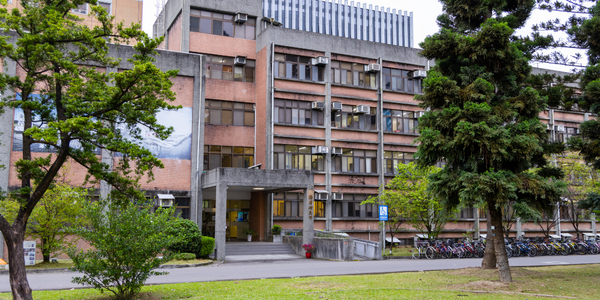Download PDF
TAL Engineering's Transition to BricsCAD for Efficient Façade Design and Fabrication
Technology Category
- Platform as a Service (PaaS) - Application Development Platforms
Applicable Industries
- Buildings
- Construction & Infrastructure
Applicable Functions
- Product Research & Development
Use Cases
- Rapid Prototyping
- Virtual Prototyping & Product Testing
The Challenge
TAL Engineering, a leading façade manufacturer in Bulgaria, was facing challenges in delivering complex façade projects. The company's team of 17 engineers in Sofia was working on projects for buildings that required very detailed and bespoke façade solutions. The team was using AutoCAD® for most of their professional career, but they needed a technology capable of handling varied and specific requirements for their upcoming projects, including the NV Tower. The challenge was to find a CAD platform that could accommodate the unusual and intricate features of their façade designs, while making their design to fabrication workflows more efficient.
About The Customer
TAL Engineering is a state-of-the-art façade manufacturer based in Bulgaria. Founded in 1998, it was one of the first companies to offer PVC and aluminum structure and façades in the country. Over the past 22 years, TAL Engineering has shaped the look of the contemporary Bulgarian environment by developing modern solutions for glazed structures and building envelopes. The company is known as the indisputable leader in their local market and has a team of 17 engineers in the façade design department in Sofia. They work on projects for buildings that require very detailed and bespoke façade solutions.
The Solution
After evaluating various CAD platforms, TAL Engineering decided to introduce BricsCAD® as their CAD tool of choice. BricsCAD, with its unique sheet metal modeling capabilities, was found to be best suited to accommodate the unusual and intricate features of TAL's façade designs. It also promised to make their design to fabrication workflows more efficient. BricsCAD’s attractive pricing and flexible licensing options were additional factors that influenced TAL’s decision to replace their existing CAD software with a more modern platform. The transition from AutoCAD to BricsCAD was smooth for Kolev’s large team of designers, as BricsCAD was compatible with AutoCAD.
Operational Impact
Related Case Studies.

Case Study
Energy Saving & Power Monitoring System
Recently a university in Taiwan was experiencing dramatic power usage increases due to its growing number of campus buildings and students. Aiming to analyze their power consumption and increase their power efficiency across 52 buildings, the university wanted to build a power management system utilizing web-based hardware and software. With these goals in mind, they contacted Advantech to help them develop their system and provide them with the means to save energy in the years to come.

Case Study
IoT System for Tunnel Construction
The Zenitaka Corporation ('Zenitaka') has two major business areas: its architectural business focuses on structures such as government buildings, office buildings, and commercial facilities, while its civil engineering business is targeted at structures such as tunnels, bridges and dams. Within these areas, there presented two issues that have always persisted in regard to the construction of mountain tunnels. These issues are 'improving safety" and "reducing energy consumption". Mountain tunnels construction requires a massive amount of electricity. This is because there are many kinds of electrical equipment being used day and night, including construction machinery, construction lighting, and ventilating fan. Despite this, the amount of power consumption is generally not tightly managed. In many cases, the exact amount of power consumption is only ascertained when the bill from the power company becomes available. Sometimes, corporations install demand-monitoring equipment to help curb the maximum power demanded. However, even in these cases, the devices only allow the total volume of power consumption to be ascertained, or they may issue warnings to prevent the contracted volume of power from being exceeded. In order to tackle the issue of reducing power consumption, it was first necessary to obtain an accurate breakdown of how much power was being used in each particular area. In other words, we needed to be able to visualize the amount of power being consumed. Safety, was also not being managed very rigorously. Even now, tunnel construction sites often use a 'name label' system for managing entry into the work site. Specifically, red labels with white reverse sides that bear the workers' names on both sides are displayed at the tunnel work site entrance. The workers themselves then flip the name label to the appropriate side when entering or exiting from the work site to indicate whether or not they are working inside the tunnel at any given time. If a worker forgets to flip his or her name label when entering or exiting from the tunnel, management cannot be performed effectively. In order to tackle the challenges mentioned above, Zenitaka decided to build a system that could improve the safety of tunnel construction as well as reduce the amount of power consumed. In other words, this new system would facilitate a clear picture of which workers were working in each location at the mountain tunnel construction site, as well as which processes were being carried out at those respective locations at any given time. The system would maintain the safety of all workers while also carefully controlling the electrical equipment to reduce unnecessary power consumption. Having decided on the concept, our next concern was whether there existed any kind of robust hardware that would not break down at the construction work site, that could move freely in response to changes in the working environment, and that could accurately detect workers and vehicles using radio frequency identification (RFID). Given that this system would involve many components that were new to Zenitaka, we decided to enlist the cooperation of E.I.Sol Co., Ltd. ('E.I.Sol') as our joint development partner, as they had provided us with a highly practical proposal.

Case Study
Intelligent Building Automation System and Energy Saving Solution
One of the most difficult problems facing the world is conserving energy in buildings. However, it is not easy to have a cost-effective solution to reduce energy usage in a building. One solution for saving energy is to implement an intelligent building automation system (BAS) which can be controlled according to its schedule. In Indonesia a large university with a five floor building and 22 classrooms wanted to save the amount of energy being used.

Case Study
Powering Smart Home Automation solutions with IoT for Energy conservation
Many industry leaders that offer Smart Energy Management products & solutions face challenges including:How to build a scalable platform that can automatically scale-up to on-board ‘n’ number of Smart home devicesData security, solution availability, and reliability are the other critical factors to deal withHow to create a robust common IoT platform that handles any kind of smart devicesHow to enable data management capabilities that would help in intelligent decision-making

Case Study
Splunk Partnership Ties Together Big Data & IoT Services
Splunk was faced with the need to meet emerging customer demands for interfacing IoT projects to its suite of services. The company required an IoT partner that would be able to easily and quickly integrate with its Splunk Enterprise platform, rather than allocating development resources and time to building out an IoT interface and application platform.






